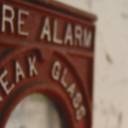The Null Device
Posts matching tags 'mental illness'
2013/10/19
Book of Lamentations, a review of the American Psychological Association's Diagnostic and Statistical Manual of Mental Disorders, Fifth Edition as a work of dystopian literature:
If the novel has an overbearing literary influence, it’s undoubtedly Jorge Luis Borges. The American Psychiatric Association takes his technique of lifting quotes from or writing faux-serious reviews for entirely imagined books and pushes it to the limit: Here, we have an entire book, something that purports to be a kind of encyclopedia of madness, a Library of Babel for the mind, containing everything that can possibly be wrong with a human being. Perhaps as an attempt to ward off the uncommitted reader, the novel begins with a lengthy account of the system of classifications used – one with an obvious debt to the Borgesian Celestial Emporium of Benevolent Knowledge, in which animals are exhaustively classified according to such sets as “those belonging to the Emperor,” “those that, at a distance, resemble flies,” and “those that are included in this classification.”
As you read, you slowly grow aware that the book’s real object of fascination isn’t the various sicknesses described in its pages, but the sickness inherent in their arrangement... This mad project is clearly something that its authors are fixated on to a somewhat unreasonable extent. In a retrospectively predictable ironic twist, this precise tendency is outlined in the book itself. The entry for obsessive-compulsive disorder with poor insight describes this taxonomical obsession in deadpan tones: “repetitive behavior, the goal of which is […] to prevent some dreaded event or situation.” Our narrator seems to believe that by compiling an exhaustive list of everything that might go askew in the human mind, this wrong state might somehow be overcome or averted. References to compulsive behavior throughout the book repeatedly refer to the “fear of dirt in someone with an obsession about contamination.” The tragic clincher comes when we’re told, “the individual does not recognize that the obsessions or compulsions are excessive or unreasonable.” This mad project is so overwhelming that its originator can’t even tell that they’ve subsumed themselves within its matrix. We’re dealing with a truly unreliable narrator here, not one that misleads us about the course of events (the narrator is compulsive, they do have poor insight), but one whose entire conceptual framework is radically off-kilter. As such, the entire story is a portrait of the narrator’s own particular madness. With this realization, DSM-5 starts to enter the realm of the properly dystopian.
2012/9/9
Alternative operating system of the day: LoseThos. It was written from scratch over nine years, runs on a PC (in ring 0), and has a just-in-time compiler for a vaguely C-like language it uses; the inspirations were the Commodore 64 (whose flat memory map and easy accessibility to the bare metal made it eminently hackable) and the voice of God speaking to its creator (who, by his own admission, is schizophrenic) through random number generators.
There's a MetaFilter thread about it, which the creator has joined (under the name “losethos”), weighing in with technical descriptions of its implementation, justifications for design decisions (in which the kinds of insights about “elegance” and solutions which “smell right” that seasoned programmers have and quasi-theological justifications based on mystical revelation are often inextricably intertwined) and stream-of-consciousness revelations from the God who speaks through random numbers. A few choice quotes:
I wanted to make a souped-up, modern 64-bit, C64 so teenagers could do what I did in high school. I had the book Mapping the C64 and I had hours of fun poking and proding around with all the internals of the operationg system for cheap thrills. I wanted to let people control the hardware directly. I wanted something simple, to get your head around. LoseThos is two orders of magnitude simpler than Linux. LoseThos is 135,000 lines of code including my compiler. It is 100% self contained and complete. When I got Linux, I was disappointed because I thought "open source" meant I would have fun messing with the code. Linux tries to support so many architectures and has a main frame operating system, that it's too complex. LoseThos is way way way simpler. Plus it has many innovative ideas. It is not ASCII source code, for example.
Photorealism is graphic and panders to base nature of humans. 640x480 is innocent. How many of you are horrified by modern games, longing for a more innocent time?As well as numerous revelations from God (whose favourite animals are apparently bears and elephants, and whose favourite band is The Beatles):
The hardest thing in evolution was getting monkey mothers to hold their babies for nursing.
God's favorite thing on TV is soap operas. Read the Bible. ROFLMAO. God likes the Beverly Hillbillies. God said Shakespeare had a vile heart. He said Christian rock was "musical privation". Good word. I like the word "Ambrosial". Go look it up. :-) I'm smug.
2012/6/1
2010/12/6
A clinical psychologist at Liverpool University has put forward a proposal to classify happiness as a psychiatric disorder:
It is proposed that happiness be classified as a psychiatric disorder and be included in future editions of the major diagnostic manuals under the new name: major affective disorder, pleasant type. In a review of the relevant literature it is shown that happiness is statistically abnormal, consists of a discrete cluster of symptoms, is associated with a range of cognitive abnormalities, and probably reflects the abnormal functioning of the central nervous system. One possible objection to this proposal remains--that happiness is not negatively valued. However, this objection is dismissed as scientifically irrelevant.
2010/6/2
ABC Radio National's All In The Mind recently interviewed a US psychiatrist who claims that psychiatry was used as a weapon against the civil rights movement in the 1960s. According to Jonathan Metzl, author of The Protest Psychosis: How Schizophrenia Became A Black Disease, the definition of schizophrenia was tweaked to apply to a lot of discontented African-Americans, with many activists being institutionalised in mental hospitals. (Until then, schizophrenia had been seen as a passive, disengaged condition mostly affecting white women; mental institutions were repurposed for containing the civil rights movement, many such patients were rediagnosed with depression and deinstitutionalised.)
All of a sudden in 1968 the second Diagnostic Manual comes out, the DSM 2, in the context of probably the most racially charged year in the history of the Civil Rights Movement—1968, where there are many riots, many protests. And also the DSM 2 importantly added language in the paranoid sub-type of schizophrenia, it added several important terms, it said the new criteria included aggression, hostility and projection. These hadn't been characteristics in DSM 1 and the manual explained, 'the patient manifests the characteristics of aggression and hostility and also attributes to others characteristics he cannot accept in himself.Even the advertisements at the time for sedative drugs used for treating patients echoed this racial paranoia:
I unearthed a series of advertisements for serious tranquilisers, Haldol, Stelazine, Thorazine that either represented African iconography, so African tribal masks, and would use incredibly charged racial language—so it would say this is the tool of primitive psychiatry and they would show these African masks—or images that quite literally showed, shockingly enough, angry black men protesting in the streets. And there's one image I reproduce in the beginning of the book, it's a Haldol advertisement that shows an angry black man in a burning urban scene who's shaking his fist. And the important point for both of these is that the iconography from these images literally appearing in the leading psychiatric journals was taking directly from the themes of the Civil Rights movement. The kind of Return to Africa Movement played out in these African scenes, and the idea of a clenched fist which was...This wasn't the first example of psychiatry being used in the service of racism in the US; in the 1850s, a surgeon named Samuel Cartwright put forward the theory that escaped slaves were suffering from illnesses he called drapetomania and dysesthesia aethiopis; his argument being that, as Negroes are psychologically unfit to cope with the pressures of freedom, escaping from one's rightful master was a sign of mental illness. This idea was, of course, very useful to those with a stake in maintaining the status quo, and flourished for some time for that reason.
Anyway, the shifting of the meaning of schizophrenia during the civil rights era was subsequently remedied partly by a deliberate programme to harmonise diagnoses with those used in Europe, though one might argue that the likelihood of the mentally ill to slip through the cracks to the prison system is part of the legacy of this phenomenon (according to Metzl, those diagnosed with schizophrenia in the US today are far more likely to end up in prison than in hospital; given that in America's neo-Calvinist penology, prisons are emphatically places of punishment first and rehabilitation a distant second, this is particularly disturbing).
Meanwhile, back in Europe, a converse relationship between mental illness and radical politics was posited from the other side; West Germany's Sozialistisches Patientenkollektiv, a radical Marxist group comprised of mental patients and the odd psychiatrist, argued that mental illness was a cultural construct, a reaction to the iniquities of capitalism.
(via Mind Hacks) ¶ 0
2008/11/12
A biologist and a sociologist have put forward a new theory of brain development and mental disorders. Crespi and Badcock's theory posits a spectrum running between autism and related social dysfunctions on one side and schizophrenia, depression and bipolar disorder on the other, with the struggle between maternal and paternal genes in the womb determining where the child's neurology will fall on this axis:
Dr. Crespi and Dr. Badcock propose that an evolutionary tug of war between genes from the father’s sperm and the mother’s egg can, in effect, tip brain development in one of two ways. A strong bias toward the father pushes a developing brain along the autistic spectrum, toward a fascination with objects, patterns, mechanical systems, at the expense of social development. A bias toward the mother moves the growing brain along what the researchers call the psychotic spectrum, toward hypersensitivity to mood, their own and others’. This, according to the theory, increases a child’s risk of developing schizophrenia later on, as well as mood problems like bipolar disorder and depression.
It was Dr. Badcock who noticed that some problems associated with autism, like a failure to meet another’s gaze, are direct contrasts to those found in people with schizophrenia, who often believe they are being watched. Where children with autism appear blind to others’ thinking and intentions, people with schizophrenia see intention and meaning everywhere, in their delusions. The idea expands on the “extreme male brain” theory of autism proposed by Dr. Simon Baron-Cohen of Cambridge.
“Think of the grandiosity in schizophrenia, how some people think that they are Jesus, or Napoleon, or omnipotent,” Dr. Crespi said, “and then contrast this with the underdeveloped sense of self in autism. Autistic kids often talk about themselves in the third person.”
2008/10/26
Via Jim's blog, which I should really check more often: the New Yorker has an excellent article by John le Carré about how spies go mad.
2007/7/10
A court was told that a 25-year-old Sydney woman with a history of mental illness, who stands accused of murdering her parents, tried to get medication to treat her illness, but her parents objected because their Scientologist beliefs prohibited psychiatric drugs. Unfortunately, the young woman's thetans got the better of her.
A psychiatric report tendered to Bankstown Local Court yesterday said the 25-year-old woman accused of murdering her father and sister in Revesby last Thursday had tried to get help twice last year, but her Scientologist parents had a religious objection to psychiatric intervention.
Mr Brooks went on to argue that modern psychiatry used many methods that were largely "unproven" and such psychiatric assumptions - such as chemical imbalances in the brain - simply did not exist.The Vice President of the Church of Scientology in Australia has issued a statement saying that the link between Scientology and the murder was "a bit of a red herring", and claiming defamation. Meanwhile, a
What is safe to say that, if they find a gene responsible for Scientology, its incidence in the gene pool is slightly less frequent now.
2005/10/14
Mental disorder of the day: Scrupulosity is a debilitating form of obsessive-compulsive disorder which takes the form of excessively fastidious religious observance, often in completely arbitrary ways, and fear of not being sufficiently devout or virtuous. It most commonly affects teenagers and recent religious converts:
Ciarrocchi has had patients who spend as much as 12 hours a day praying. He says he once treated a Third World-based priest who, after conducting his weekly outdoor Mass, would crawl on the ground searching for slivers of Communion wafer. In his mind, a priest had to be perfectly fastidious about discharging his holy responsibilities or else risk the wrath of God.
"Many people who are scrupulous have a notion that they're being watched," he says, "and one false move, it's curtains."
He recalls an Orthodox Jewish teenager who made so many promises to God — to drink only so many sodas a day, to visit 7-Eleven only so many times a week, to never switch radio stations midsong — that keeping track of them got logistically impossible. It became debilitating.
"He couldn't move," Mansueto says. "He literally couldn't get out of his chair."
The first five months of his new life were blissful. Then he became increasingly scrupulous. He would retreat into his room for hours at a time, memorizing about 300 Bible verses word for word. He'd dissect church sermons and agonize over his prospects of salvation.Evidence of the phenomenon of scrupulosity goes back to at least the 9th century (when the Christian church brought in the ritual of confession, and compulsive confessors were first encountered), and some say that famous religious figures throughout history, including St. Ignatius of Loyola and Martin Luther, were afflicted with this condition. (Of course, had they been "healthy", they may well have lived their lives out in contented obscurity.)
" 'Do you really think I'm saved?' He'd probably ask me that 10 times a day," his wife says.
"It became a huge tormenting thing for me," he says. "I started fearing I was never converted or saved. I would have blasphemous thoughts, cursing God in my mind. I'd have to pray to get rid of it."
Fortunately, drugs such as Zoloft and Paxil can be used to treat scrupulosity. I wonder how many potential saints the world loses every year to modern psychopharmacology.
2005/10/7
George W. Bush, Commander of the Free World, says that God told him to invade Iraq:
One of the delegates, Nabil Shaath, who was Palestinian foreign minister at the time, said: "President Bush said to all of us: 'I am driven with a mission from God'. God would tell me, 'George go and fight these terrorists in Afghanistan'. And I did. And then God would tell me 'George, go and end the tyranny in Iraq'. And I did."
Mr Bush went on: "And now, again, I feel God's words coming to me, 'Go get the Palestinians their state and get the Israelis their security, and get peace in the Middle East'. And, by God, I'm gonna do it."As they say, "if you talk to God, you're praying; if God talks to you, you have schizophrenia". At least it wasn't his talking dog that told him to invade Iraq or lower taxes for the rich or whatever.
The Whitehouse, however, is denying that Bush made those statements. I wonder whether it's (a) to not alienate the more secular-minded Republican voters (i.e., neoconservatives and libertarians) or (b) because much of the staunchly pro-Israeli US Religious Right would consider the idea of God sanctioning a Palestinian state blasphemous.
2005/10/5
A while ago, I picked up the box set of The Prisoner, and have been gradually making my way through the episodes I hadn't seen, one at a time.
I recently watched the episode titled "The Girl Who Was Death", which features a mad scientist who thinks he's Napoleon. As I watched it, I found myself thinking about the old cliché of delusionally insane people thinking that they're Napoleon. It seems to pop up a lot in films, TV and other media of a certain age (Looney Tunes cartoons, for example), tapering off around the 1960s (though still making the occasional appearance, in things like Highlander sequels); and there even was a famous pop song referencing it. Nowadays, one doesn't hear about nuthouses full of Napoleons; more modern sufferers of delusions are apparently more likely to think they're Jesus; either that (I once heard) or superheroes or ninjas or such.
I imagine that this has to do with the historical figure of Napoleon having cast a much longer shadow earlier in this century than he does now. When Napoleon loomed large in the public consciousness, a padded cell probably looked a lot like Saint Helena. It wouldn't surprise me if the I-think-I'm-Napoleon cliché was an old Vaudeville device or similar, dating back well before World War 2 (which somewhat demoted the French emperor's standing in the league of scourges of Europe), and the mass-media-saturated post-war world (whose brighter, more vivid archetypes undoubtedly displaced 18th-century history books from the public consciousness).
The ever-shifting landscape of public image affects how we see things. For one, the villain in The Girl Who Was Death reminded me of none other than Xeni Jardin.
2005/10/4
A new art exhibit is causing controversy in Paris; the Plancher de Jeannot (Jeannot's Floorboards) consists of the floor of a Pyreneean farmhouse, into which its schizophrenic inhabitant carved increasingly disturbed rants:
Jeannot moved his bed to the dining room, next to the stairs, and began carving the oak floor: 'Religion has invented machines for commanding the brain of people and animals and with an invention for seeing our vision through the retina uses us to do ill (...) the church after using Hitler to kill the Jews wanted to invent a trial to take power (...) we Jean Paule are innocent we have neither killed nor destroyed nor hurt others it's religion that uses electronic machines to command the brain.'The Plancher de Jeannot have gone on display at the Bibliotheque François Mitterrand in Paris, amidst much controversy; once the exhibition is finished, they will be donated to a psychiatric hospital in Paris. Some photographs are here amd here.
(via ![]() substitute) ¶ 0
substitute) ¶ 0
2005/5/27
A survey of the similarities between love and various pathological conditions:
The initial drive - lust - is brought on by surges of sex hormones, such as testosterone and estrogen. These induce an indiscriminate scramble for physical gratification. Attraction transpires once a more-or-less appropriate object is found (with the right body language and speed and tone of voice) and is tied to a panoply of sleep and eating disorders.
Obsessive thoughts regarding the Loved One and compulsive acts are also common. Perception is distorted as is cognition. "Love is blind" and the lover easily fails the reality test. Falling in love involves the enhanced secretion of b-Phenylethylamine (PEA, or the "love chemical") in the first 2 to 4 years of the relationship. This natural drug creates an euphoric high and helps obscure the failings and shortcomings of the potential mate. Such oblivion - perceiving only the spouse's good sides while discarding her bad ones - is a pathology akin to the primitive psychological defense mechanism known as "splitting". Narcissists - patients suffering from the Narcissistic Personality Disorder - also Idealize romantic or intimate partners. A similar cognitive-emotional impairment is common in many mental health conditions.
Love, in all its phases and manifestations, is an addiction, probably to the various forms of internally secreted norepinephrine, such as the aforementioned amphetamine-like PEA. Love, in other words, is a form of substance abuse. The withdrawal of romantic love has serious mental health repercussions.
Also via Mind Hacks, studies of the neurology of sarcasm, which turns out to be a good subject for exploring subjects' theory of mind, being carried out at the fantastically-named Rambam Medical Center in Haifa, Israel.
2005/2/17
The Graun's Alexis Petridis looks at why the (ostensibly) mentally disturbed make such compelling rock stars:
According to Oliver James, a clinical psychologist and author of They Fuck You Up: How to Survive Family Life, the rise in numbers and popularity of emo acts may be linked to a rise in mental illness among their obvious target market of 18- to 24-year-olds (the age group most likely to be affected by psychological problems, according to studies published in Europe and Australia).
But if fans buy into it, that may be because rock music, unlike other art forms, is depicted as benefiting from being created by those with mental illness. Most critics would tell you Van Gogh's paintings are great despite, rather than because of, his psychiatric problems - but that's not true of the Beach Boys' Smile or Barrett's The Madcap Laughs or Nirvana's In Utero, for example, whose greatness is widely held to be inexorably entwined with their creators' mental problems.
It's the whole dionysiac genius thing; the myth, deeply ingrained in the Rockist mindset, that primal authenticity and true brilliance comes not from carefully honed technique, deep knowledge of the genre, cleverness or anything so square and totally un-rock-and-roll, but from abandoning oneself to the frenzy like a Viking berzerker. To give a topical example, crack-smoking, junk-shooting fuckup Pete Doherty is one of the greatest geniuses of our time, and his new band Babyshambles is ten times the band that The Libertines (who kicked him out) were, as the world would find out if he'd ever get his shit together for long enough to actually play a gig.
The article also mentions Ol' Dirty Bastard, as an example of the fine line between empathy and voyeurism. One notable omission, though, is Wesley Willis, described by Jello Biafra as one of the most punk-rock artists ever.
Of course, with the rising popularity of emo and various forms of fuckedupcore came a lot of opportunists putting on the "tortured genius" act, acting like caricatures of pissed-off, fucked-up, tantrum-throwing teenage nihilists and raking in the cash. Thirtysomething Universal Music executive and part-time teenage mook Fred Durst is one name that's mentioned there; and I'm sure you can think of other notable examples (anyone remember Vanilla Ice's reinvention as a tortured, angry-white-guy rap-metal mook? Or cyberpunk boy-band Information Society's post-Reznorian take-a-walk-through-my-nightmares industriogothic makeover?)
(On a tangent: Wikipedia's lists of songs about bipolar disorder and suicide)
2004/6/9
What happens when a Something Awful goon gets sent to several mental institutions? He writes an article about it, describing the unique sorts of characters most normal people rarely get the chance to observe and interact with to this extent, the camaraderie that forms in that environment, and why it's a bad idea to date chicks you meet in mental hospitals: (via MeFi)
The worst person on the ward though was a small little guy named Rafael. Rafael demanded to be called Obie, and would randomly scream out things like "I did not take her panties off!" Rafael also had the bad habit of hiding in the women's shower room, trying to catch a peek at various butter-troll patients.
The story of Ricky and Lisa started well before I arrived in Summit. Lisa was a 22 year old married mother of two, in the ward for yet another suicide attempt. Ricky was your typical fat, greasy fucked up looking mama's boy: 40, living at home, no job, no chance in life. He was discharged 3 days before I was brought in. He apparently fell in love with Lisa. I'm guessing she was the first girl who ever was nice to him, because once he was discharged, he spent literally ALL DAY calling the payphones asking for her. From the time the phones were turned on after breakfast to the time they were turned off for lights out, like clockwork almost every call would be Ricky asking for Lisa.
Ross was easily the worst roommate I ever had. He was loud, hyper and just downright annoying as hell. He decided that I would be his new best friend, even though it was painfully clear I couldn't stand him. Everywhere I went on the wing, Ross would follow me. If I got up and moved, Ross would be about 3 steps behind me. He was like a bloodhound, no matter where I was, he'd find me. Soon my hatred for Ross knew no bounds. Ross was also the biggest wigger I've ever seen in my life. Think of that piece of shit movie Malibu's Most Wanted. He was that guy. He also had the rather unfortunate habit of calling everyone "nigga". The staff, patients, even the servers upstairs in the dining hall. Since many of the staff was black, this was not taken kindly.
2004/3/17
Some genius has tried to nail himself to a cross (as one does) after "seeing pictures of God on the computer"; he successfully nailed one hand to the makeshift cross, but ended up calling the police after realising that he had no way of nailing his other hand in.
2004/2/23
Journal of a Schizophrenic, a lucid first-person account of one person experiencing (and later playing pool with) a "voice" in his head and having delusions of persecution at work.
Me: Jesus H. Christ, I need to see a shrink.
It: That's not necessary. We could play some pool, and talk. Not out loud, please.
Me: .... Are you really there? Prove it - tell me something I don't know.
It: That's not how it works. We share the same physical body, we have the same hippocampus, the same brain; the same memories. We think differently, act differently.
Me: Then how can we play a game of pool?
It: It will be very difficult. Set up the table, take a shot, and then step back. I promise that I will step back after the game.
Me: No way. This is insane.
Sometimes, I confess, I do miss the voice. I suppose it's difficult to have a more meaningful metaphysical conversation than with someone in your own head. And true: I don't have very many friends; I spend very little time with my family; I've never had a girlfriend or a boyfriend. But the thing is, I wouldn't have it any other way. I live in my books, through my writing, and because of my ideas. While I am often alone, I am very rarely lonely.
2003/12/24
The Sunday before the most recent one, I visited the abandoned Mayday Hills mental hospital in Beechworth, northern Victoria; the hospital is now part of the local campus of La Trobe University, but many of the buildings are disused and bolted shut; apparently they're on the national trust register and cannot be adapted into modern facilities, or something like that, so they just sit there, slowly crumbling, and giving off the faint but distinctly eldritch aura of buried lives. Here are some photos I took (click thumbnail to see the full picture):
(All photos © acb 2003; if you wish to use them, ask me.)
2003/6/4
Something for the outsider-art fans: a list of notable music by the mentally ill and eccentric, from Joe Meek to Syd Barrett to Wesley Willis:
T. Valentine, "Hello Lucille, Are You a Lesbian?"
If a bloodline could be traced from Wesley Willis, it would lead straight to this R&B catastrophe, who in 1982 dedicated this song to his wife after she came out of the closet. "I hate all lesbians," T. Valentine emotes with a pronounced lisp (hmmm).
Richard Peterson, "New Young Fresh Fellows Theme" (PopLlama, 7-inch single)
You've probably seen the large-statured Peterson blowing his trumpet around town. Peterson, who could have played the lead in Sling Blade, has recorded four albums and this 1992 single, in which he wrote and arranged a new theme for YFF (which is musically brilliant), insisting in the lyrics that YFF should add Peterson to the fold.
2003/5/27
Tonight I went to see Spider, David Cronenberg's most recent film, about a mentally ill man recently released from decades in an asylum, finding himself near his childhood home and coming to terms with old memories, and whether or not his father murdered his mother. The main character, Ralph Fiennes, plays an almost silent role, mumbling incoherently to himself, scrawling illegibly in a notebook, skulking about and performing various seemingly irrational actions; soon the film shows him literally visiting the scenes of his childhood (as they are in his mind), invisibly lurking in the background as the dramas play themselves out; the film all falls together in the end, with his quirks all taking on new meanings. The film is set in the bleak working-class London of kitchen-sink films (the photography and sets emphasise the coldness and bleakness very well; the traditional English wallpaper is just one of the details), only rather than literal-minded socialist-realist homily we get a more internal, psychological film. This film is a break from Cronenberg's usual plastic sex-horror, having virtually no special effects in the traditional sense (unless one counts clever quirks of casting).
I'd recommend it. Probably not an ideal date movie, or the thing to see if you're suicidally depressed, but it's a very good portrayal of mental illness. (It'd probably be on my list of Best Schizophrenia Films of All Time, alongside Angels of the Universe.)
2003/5/7
A reportedly brilliant Canadian physicist with bipolar disorder is fighting a court case to prevent psychiatrists from forcibly medicating him. Scott Starson asserts that forcible medication would slow his thinking, dull his inspiration and make him appear disoriented, and that that he would rather be locked up for life than medicated. The psychiatrists, however, don't see it that way. Starson was committed to a mental institution after threatening a neighbour.
"Being 'normal' would be worse than death for me, because I have always considered normal to be a term so boring it would be like death," he remarked bitterly during one hearing.
(Amen to that.)
Mr. Starson, who repeatedly insisted that he be called "Professor Starson" and that the word "if" not be used in questioning him, said he is confident that he will prevail. Breaking off a train of thought involving moon-walking astronauts, his claim to have invented the modular telephone and his plans for a team of 200 lawyers scattered worldwide, Mr. Starson addressed his case: "Here, I'm basically dealing with the bottom of your species," he said. "Your species deals with force so much. Force is not the way science operates. And the worst religion on the planet is psychiatry."
(via NWD)
2003/4/22
A Chicago man has been committed to a mental hospital for promoting the tapes and materials of satellite radio conspiracy show host Alex Jones. Fair call, or proof that mental health laws are a tool of fnord the reptilian Illuminati used to silence anyone trying to alert the sheeple to their loathsome baby-eating ways? (via NWD)
(Jones may be best known for having investigated the Bilderberg Conference with Guardian journalist Jon Ronson; Ronson found a bunch of rich old men indulging in a somewhat pathetic frat-boy party, whereas Jones found Satanic rituals and human sacrifice in the same events. Go figure.)
2003/3/19
Two London-based artists reenact a Cramps gig at a mental hospital, bringing real mental patients into the venue. The original gig was played in a Californian mental hospital in 1978, and only poor-quality video tapes exist of it.
The band's hair, outfits and guitars were copied from what little can be made out in the bootleg video, but the audience were free to dress, act and dance as they wished. The overall "realism" is in the documentation, with the artists' video being scripted to ensure the same pulls, camera jumps and lack of focus as the original. The film will later be re-shot from a TV screen and copied from videotape to videotape until the desired breakdown in quality is achieved.
Some at the ICA were worried that they may be accused of exploiting those with mental health problems; mental health charities were concerned that they might be renting patients to the art world; and the artists themselves were wary of getting out of their depth.
(via Reenhead)
2003/2/14
Life imitates Reefer Madness: Man goes on psychotic rampage after smoking 100 bongs a day. It is believed that the staggeringly huge quantities of primo-grade ganja consumed by the man led to a violent psychosis. So remember kids: don't smoke marijuana; it'll make you go mad and kill people.
2003/2/5
A recent interview with Phil Spector (who came out of seclusion to produce the new album for next-Oasis-candidates Starsailor) in which he talks about his psychological problems.
"I take medication for schizophrenia, but I wouldn't say I'm schizophrenic. But I have a bipolar personality, which is strange. I'm my own worst enemy. I have devils inside that fight me."
And the Graun has a brief biography of the gun-toting studio genius.
(What is it about music producers and guns? First Joe Meek went berzerk in the '60s, then Martin Hannett started shooting telephones, and now Phil Spector's gun-waving antics have come to a tragic denoument.)
2002/12/17
A new study at the Max Planck Institute for Psychiatry has found that mental illness precedes Ecstasy use; the study shows that 69% of Ecstasy users had a history of mental problems (as defined in DSM-IV; this includes things like depression and anxiety, not just schizophrenia, psychosis and such); and in 88% of cases, the problems preceded Ecstasy use. Does this mean you'd have to be nuts to be a raver?
(Then again, who isn't at least a little fucked up these days?) (via FmH)
2002/8/29
A man in the US is facing 3 years in prison for dissecting his daughter's guinea pig on September 13, 2001. Benny Zavala claims that he believed that the guinea pig was a camera-equipped robot placed in his home by government agents. (via rotten.com)
2001/10/5
Crazy is discharging yourself from the mental hospital, and then stealing a bus to go home -- and stopping to pick up passengers.
2001/3/20
Is schizophrenia a byproduct of the evolution of human intelligence? A new theory suggests this. I wonder whether in some situations some forms of schizophrenia could have been adaptive to genetic fitness (i.e., making the afflicted a fitter chieftain/prophet/leader), with current forms being a throwback to this.
2000/11/21
The Atlantic Monthly has a fascinating piece on apotemnophilia, the neurological/psychological condition that causes one to want to have healthy limbs amputated.
In May of 1998 a seventy-nine-year-old man from New York traveled to Mexico and paid $10,000 for a black-market leg amputation; he died of gangrene in a motel. In October of 1999 a mentally competent man in Milwaukee severed his arm with a homemade guillotine, and then threatened to sever it again if surgeons reattached it. That same month a legal investigator for the California state bar, after being refused a hospital amputation, tied off her legs with tourniquets and began to pack them in ice, hoping that gangrene would set in, necessitating an amputation. She passed out and ultimately gave up. Now she says she will probably have to lie under a train, or shoot her legs off with a shotgun.
Some wannabes are also devotees. Others who identify themselves as wannabes are drawn to extreme body modification... Some wannabes, Robert Smith suggests, want amputation as a way to gain sympathy from others. And finally, there are "true" apotemnophiles, whose desire for amputation is less about sex than about identity. "My left foot was not part of me," says one amputee, who had wished for amputation since the age of eight.
I met Price through an Internet discussion listserv called "amputee-by-choice," one of the larger lists. At first I had simply prowled through the archives and listened to the ongoing conversation. I found many of the archived messages very creepy. Here were people exchanging photographs of hands with missing fingers; speculating about black-market amputations in Russia; debating the merits of industrial accidents, gunshot wounds, self-inflicted gangrene, chain-saw slips, dry ice, and cigar cutters as means of getting rid of their limbs and digits.
The idea of having one's legs amputated might never even enter the minds of some people until it is suggested to them. Yet once it is suggested, and not just suggested but paired with imagery that a person's past may have primed him or her to appreciate, that act becomes possible.













